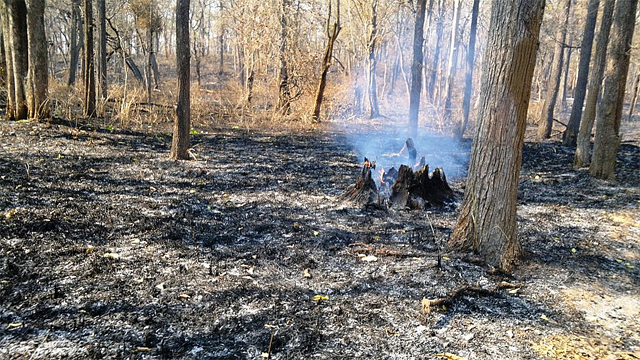According to an article in The Hindu last week, some Paliyans acted heroically to help rescue trekkers in the mountains of Tamil Nadu who had been overcome by a forest fire.

When police and medical personnel wanted to launch a rescue operation for the trekkers in Kolukkumalai, located in the Theni district near Kurangani, they turned to the tribal people because of their intimate knowledge of the mountains and forests of the area. The fire claimed the lives of 10 trekkers but, journalist S. Vijay Kumar wrote, more were undoubtedly saved due to the quick actions of the Paliyans.
Survivors fleeing from the conflagration alerted police authorities in Kurangani around 3:30 p.m. on Sunday March 11 and they quickly turned to the local Paliyan people and some members of another tribal society, the Madhuva, who responded immediately. The Paliyans, who knew the area and possible escape routes, led rescue and medical crews into the affected areas. Little could be done to help fire victims with severe burns, but they led people who were able to move along forest trails to safer areas.

K. Venkadapathy, who is a trekking enthusiast from the small city of Bodinayakkanur in the Theni District, told the reporter that the group had become confused by the unfamiliar forest terrain of the Western Ghats mountain range. They had become anxious because of the intensity of the rapidly moving fire. Except for the assistance of the tribal people, who walked into the fire zone where the trekkers were trapped, they would not have been able to make it to safety. Venkadapathy indicated that the fire had been burning in the forest for about a week, but it began to spread very rapidly due to sudden high winds. He didn’t say why the trekkers had entered the forest in the first place under those conditions.
The Paliyan rescuers themselves would be the first to deny any heroism on their own part since traditionally they do like to stand out above others. Peter Gardner, in his article published in 2000 entitled “Respect and Nonviolence among Recently Sedentary Paliyan Foragers,” which is available as a PDF in this website, indicates that anything interfering with the autonomy of others is considered to be disrespectful. Gardner writes (p.220) that “Paliyans avoid all … comparative or evaluative discussion of abilities of people, even though some really are so much more skilled or knowledgeable than others [and the] Paliyans must be aware of this.”
They not only deny that as individuals they have more abilities than others, they reject the possibility of there being differences in strength or ability among people. They “are self-conscious about doing or receiving anything which sets them off from others,” according to Gardner. The perception of equality is an absolute requirement for their sense of mutual respect and their beliefs in their own peacefulness.